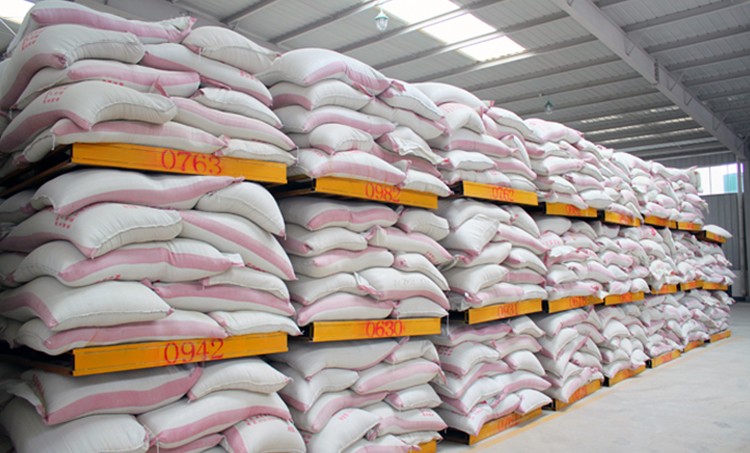
In the summer, the high temperature and high humidity environment will not only promote the growth of microorganisms and pests in the feed, but also stimulate the activity of hydrolytic enzymes in the feed, which will lead to the decomposition and loss of nutrients.
Deteriorated feed will bring diseases to livestock, poultry and aquatic products, and cause unnecessary losses to the breeding industry. Therefore, feed mills and breeding farms need to do a good job of safe storage of feed to prevent problems before they happen.
1. Scientific planning of feed inventory
Feed mills and farms plan the purchase and production quantity of raw materials, self-ingredients or finished materials on a daily basis. Feed ingredients follow the principle of "first in, first out" to shorten the storage time. The feed factory should "determine production by sales" to reduce unnecessary inventory accumulation.
Second, control the feed moisture
It is understood that feed moisture is also an extremely important factor affecting mildew. When the feed moisture is less than 10%, the production of microorganisms can be effectively inhibited; when the feed moisture reaches 13.5%, it will accelerate the growth and reproduction of bacteria; when the moisture is more than 15%, mildew is very easy to occur.
Third, do a good job in warehouse management and stacking methods
1. The warehouse should be well ventilated and dried, and auxiliary tools such as pads should be installed to avoid direct contact with the ground; if there is a requirement for cool storage, it should be stored in a low temperature and no light environment.
2. When the bagged feed is placed, the pad is generally 10-20 cm away from the ground and at least 10 cm away from the wall and the next wall; when the bulk feed is stored, the height should not exceed 2.5 meters, and it needs to be adjusted according to the moisture. If the moisture is higher than 13 %, the storage height is reduced accordingly.
3. When summer comes, you must pay attention to the ventilation and drying of the warehouse, and reduce the temperature and humidity. The lower the temperature, the better the feed storage. If the temperature is higher than 30 degrees, the feed is prone to mildew.
4. Reasonable use of anti-mildew measures, such as effective control of humidity and oxygen infiltration from the packaging bag; anti-mildew agents can also be added before the feed is stored to prevent mildew.
4. Pay attention to the prevention and control of pests
The prevention and control of rodents and harmful insects in the warehouse are carried out regularly. Rodents not only carry germs, but also bite the feed bags, causing serious pollution and deterioration of the feed.
In addition, the pests can be preliminarily killed before the feed enters the warehouse, and the feed can be air-dried in summer, which can effectively kill some pests and bacteria by using high temperature.
5. Keep the warehouse clean and tidy
In summer, it is necessary to check the cleanliness of the floor, walls, and packaging of the feed storehouse every day, and do a good job of cleaning and cleaning up the equipment feed opening and other parts to ensure that there are no material residues and avoid the growth of bacteria after a long time.

